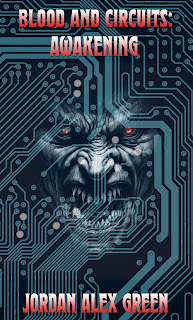Gotcha
stories.
“Mankind is gone,” the girl
said, looking out over the ruined city. They had stopped the alien war
machines, but not before they had killed all the teaming billions of Earth.
Save for the last two humans. “What shall we do?” she said, looking up at the
tall man by her side.
“We shall rebuild, Eve,” Adam
said. “And our children will inherit the Earth.
The last two survivors of the apocalypse were… ADAM
AND EVE? WHAT A TWIST!
Yeah, it’s the gotcha story, where
something happens at the end of the story to change everything. I’m actually
writing a short story with a “gotcha” in it. Done right, it can be a fun little
story, but done wrong, or at least overdone…
Well, there’s a reason Analog has in the
past specifically called
out the “Adam and Eve” twist as something you shouldn’t
even bother submitting. It was getting old in the 1950s, and it’s really,
really old now. Even
some of the variants, like the excellent “Adam and No Eve” by Alfred
Bester, very much exceptions to the rule.
It’d be hard to come up with anything like that.
Now a good gotcha story can be pretty nice. In
some respects, Charlie Stross’s “Missile Gap” is just such
a story where you find out in the end that things were quite different than
what the main characters (and you) assumed.
Horror is often a good place for the gotcha—the
nice lady is actually a ghost, or you were dead all along. Good times.
So when shouldn’t you
use a gotcha story? Well, if you
suddenly noticed a spate of them, don’t. The gotcha works because the reader is
either fooled—or is willing to go along with the idea of the characters being fooled. If every other ebook on Amazon
is putting out the new “it was the microwave all along!” story, most
people won’t find it amusing—they’ll yawn.
Another case is if your gotcha
ending is forcing you to lie to the reader. Now, the entire point of a gotcha
ending is everyone makes the wrong assumptions. But, the more you actively
ignore things that the reader would have seen, the more they’ll feel cheated at
the end. Ideally, a gotcha ending should have enough hints that at the end, the
reader isn’t just liking the ending—they’re going back and finding all the
little hints that they—and the characters, misjudged.
Just as an example—say the gotcha ending was the other character was dead all
along. When writing, you want to ensure that when the gotcha hits, you can go
back and see the signs.
For example, nobody responds when the character
talks, save for the person who can see them. They don’t
interact with other people or things. Maybe it’s shown by the ghost is always
running off when someone else shows up. However, the effect is handled well
enough so that when the gotcha hits, the reader will go: oh yeah, instead of oh
c’mon!
That last is bad for a gotcha story.
So don’t be afraid to try it, but
remember:
Adam
and Even has been done.

